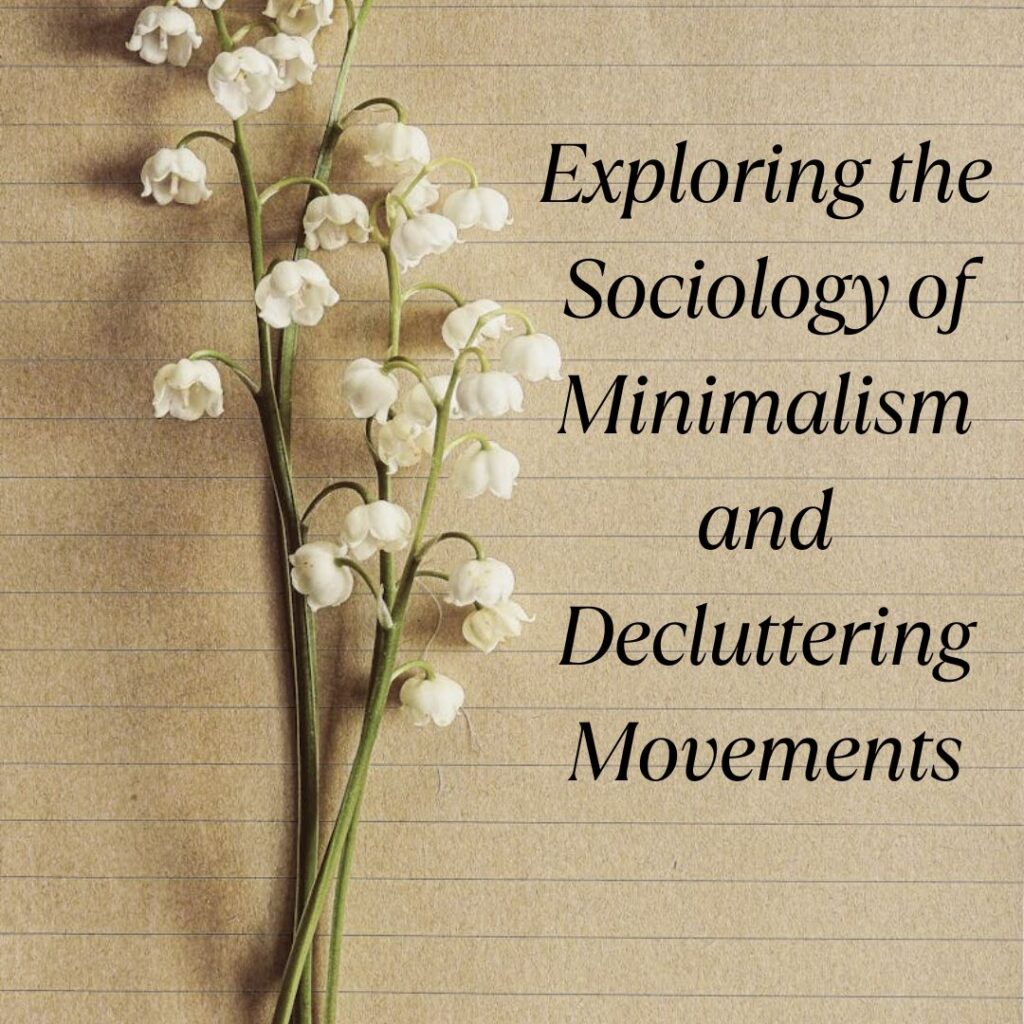In an age where consumerism often defines our lifestyles, the rise of minimalism and the decluttering movement represents a cultural shift towards intentional living and conscious consumption. What started as a niche trend has evolved into a significant sociological phenomenon, influencing how people perceive their possessions, spaces, and even identities.
Understanding Minimalism and Decluttering
Minimalism, at its core, advocates for simplifying one’s life by focusing on what truly matters and shedding excess material possessions. This concept is not merely about having fewer things but rather about fostering a mindset that values experiences, relationships, and personal growth over accumulation.
The decluttering movement, popularized by Marie Kondo’s KonMari method, emphasizes the transformative power of tidying up. It encourages individuals to evaluate their belongings based on whether they spark joy and to let go of those that no longer serve a purpose. This process is not only about organizing physical spaces but also about achieving mental clarity and emotional well-being through the act of letting go.
Societal Context and Consumer Culture
To understand the popularity of minimalism and decluttering, we must consider the societal context in which these movements have gained traction. The late 20th and early 21st centuries have been marked by unprecedented consumerism, fueled by advertising, globalization, and technological advancements. As a result, many people find themselves overwhelmed by the sheer volume of possessions and the relentless pursuit of more.
In this context, minimalism offers a counter-cultural response—a deliberate rejection of the notion that happiness and fulfillment are found in material wealth alone. It challenges the status quo by questioning the narrative that equates success with conspicuous consumption.
Environmental and Economic Implications
Beyond personal lifestyle choices, minimalism and decluttering have broader implications for sustainability and economic patterns. The environmental impact of overconsumption is undeniable, with resource depletion and waste generation posing significant challenges. By promoting mindful consumption and reducing waste, these movements align with sustainability goals and advocate for a more responsible use of resources.
Economically, minimalism challenges traditional models of economic growth based on consumption-driven capitalism. While critics may argue that reducing consumption could stifle economic activity, proponents suggest that a shift towards quality over quantity could lead to more sustainable economic practices and promote industries focused on durability and longevity.
Psychological and Emotional Benefits
From a psychological perspective, minimalism and decluttering offer profound benefits. Studies have shown that cluttered environments can contribute to stress and anxiety, while organized spaces can promote a sense of calm and control. By simplifying their surroundings, individuals often report feeling lighter, more focused, and better able to appreciate what they have.
Emotionally, the act of decluttering can be cathartic, allowing people to confront attachments to material possessions and reassess their values. This process of introspection can lead to personal growth and a deeper understanding of one’s priorities and aspirations.
Cultural Influences and Media Representation
The popularity of minimalism and decluttering has been further fueled by social media and popular culture. Influencers and bloggers share their personal journeys towards a simpler life, offering tips, inspiration, and before-and-after transformations that resonate with audiences worldwide. Platforms like Instagram and YouTube have become virtual communities where individuals seeking guidance and encouragement can connect and share their experiences.
Moreover, the aesthetic appeal of minimalism—clean lines, uncluttered spaces, and a focus on quality craftsmanship—has permeated design trends, architecture, and even fashion. The influence of minimalist principles can be seen in everything from home décor to urban planning, reflecting a broader cultural shift towards simplicity and functionality.
Challenges and Criticisms
Despite its growing popularity, minimalism is not without its challenges and criticisms. Critics argue that it is a privileged lifestyle choice accessible primarily to those with economic means. The concept of minimalism itself can be perceived as elitist or exclusionary, particularly in societies where material wealth is equated with social status.
Moreover, the minimalist aesthetic portrayed in media often emphasizes a curated and idealized version of simplicity, which may not be achievable or desirable for everyone. The pressure to declutter and live minimally can also inadvertently create feelings of guilt or inadequacy in individuals who struggle with letting go or who find comfort in abundance.
The Future of Minimalism and Decluttering
Looking ahead, the future of minimalism and decluttering seems promising yet complex. As these movements continue to evolve, they are likely to intersect with other social, economic, and environmental trends. The ongoing climate crisis, for instance, may further underscore the importance of sustainable consumption practices advocated by minimalists.
Technological advancements, such as the rise of digital minimalism and the sharing economy, may also reshape how we perceive ownership and consumption. Concepts like Marie Kondo’s “sparking joy” could influence product design and marketing strategies, prompting businesses to prioritize quality, longevity, and emotional appeal over mass production and planned obsolescence.
In conclusion, minimalism and the decluttering movement represent more than just trends in home organization—they embody a profound cultural shift towards mindful living and sustainable practices. By encouraging individuals to reassess their relationship with material possessions and prioritize what truly matters, these movements offer a compelling vision for a more intentional and fulfilling way of life in the 21st century.
As we navigate an increasingly complex and interconnected world, perhaps the essence of minimalism lies not in deprivation or austerity but in the liberation that comes from living with greater intentionality, mindfulness, and respect for the resources that sustain us.






